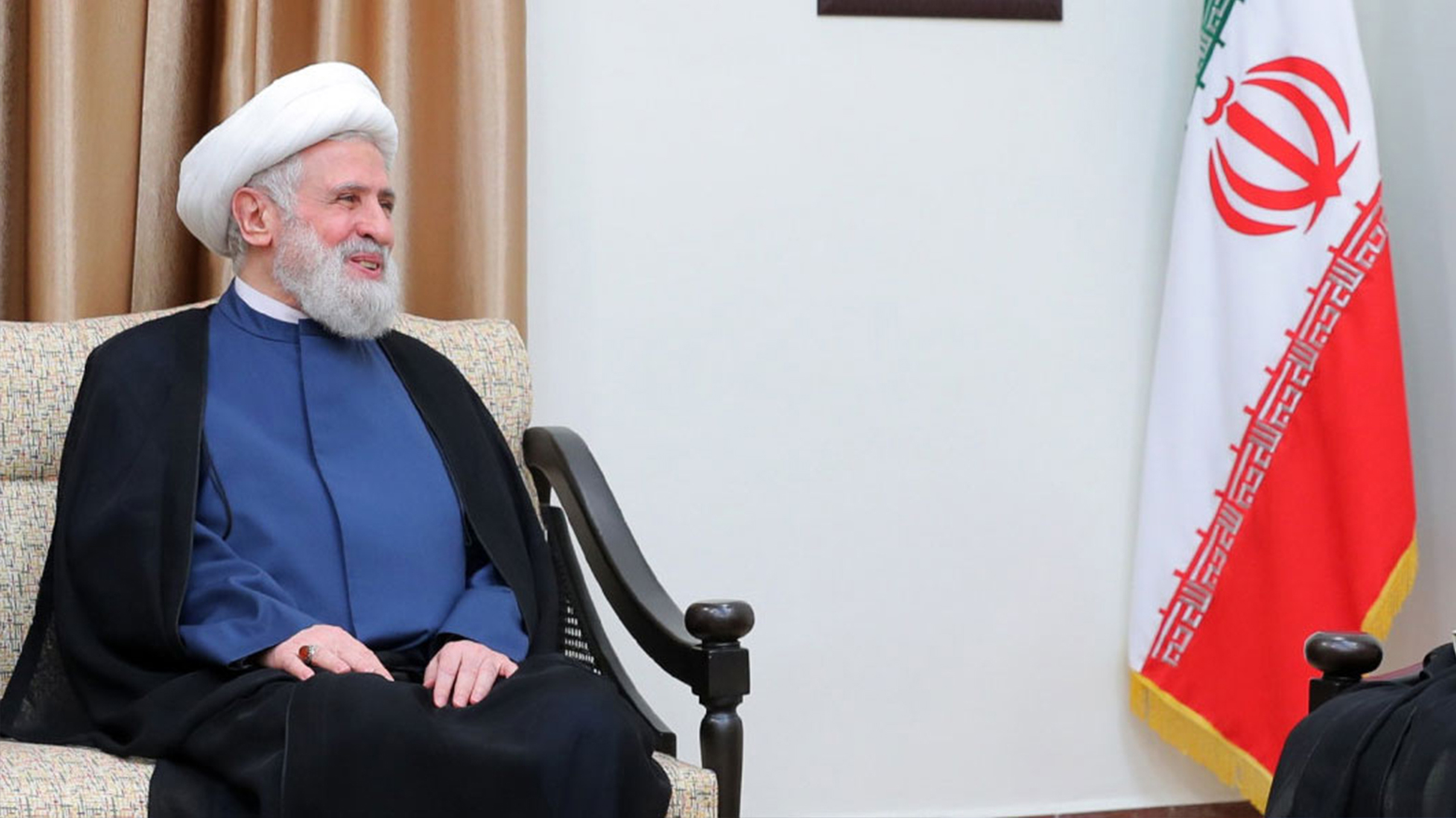Hezbollah’s Qassem Reaffirms Arms as 'Internal Matter,' Blames U.S. and Israel for Escalations
Hezbollah's Qassem: 'Arms are Lebanon's internal affair,' blames US-Israel 'collusion' for escalation. Rejects disarmament calls as serving 'Israeli project,' warns of further attacks if pressure continues.

ERBIL (Kurdistan24) – Hezbollah’s Secretary-General, Sheikh Naim Qassem, declared that the group’s arms remain strictly “a Lebanese internal matter,” as he accused Israel and the United States of conspiring to prolong hostilities in Lebanon.
Speaking via video address, Qassem said Washington was “surprised by a unified official stance” that demanded Israel halt its aggression prior to any negotiations. He emphasized that Tel Aviv has continued to breach the ceasefire “in order to pressure us,” and warned that “Israel may escalate further in Lebanon if it succeeds in achieving its goal of disarmament.”
Qassem categorically rejected demands to surrender Hezbollah’s arsenal, stating, “Anyone calling for disarmament at this time is serving the Israeli project.” He stressed, “The weapon of Hezbollah is a purely Lebanese issue.”
He also charged the United States with seeking to “create a problem in Lebanon” by applying indirect pressure through Israel, describing the two as “colluding” in sustaining military operations against Lebanese territory.
Defiance amid Continued Ceasefire Violations
The remarks come amid repeated Israeli airstrikes across southern Lebanon, despite the truce in place since November. The ceasefire followed more than a year of clashes that intensified into open confrontation beginning in September.
Israel claims its ongoing strikes target Hezbollah positions and operatives, as it seeks to prevent the group from reconstituting its military infrastructure, which reportedly suffered significant losses during the conflict.
Qassem responded to Israeli actions by asserting, “Hezbollah is not weak. It holds political and popular presence in Lebanon.” He added, “Now that the state has assumed responsibility, we are no longer responsible for confronting the aggression.”
Qassem’s remarks stand in sharp contrast to the position of U.S. officials, including Tom Barrack, the U.S. Ambassador to Türkiye and Special Envoy for Syria. In a recent post on X, Barrack stated that Lebanon’s “credibility rests on its ability to match principle with practice,” echoing Lebanese leaders who insist that “the state must have a monopoly on arms.”
“As long as Hezbollah retains arms, words will not suffice,” Barrack wrote, adding that both the government and Hezbollah must “fully commit and act now” to avoid “consigning the Lebanese people to the stumbling status quo.”
The mounting friction underscores a deepening standoff over Hezbollah’s military role and the future of Lebanon’s internal sovereignty, amid a fragile ceasefire and international scrutiny.
